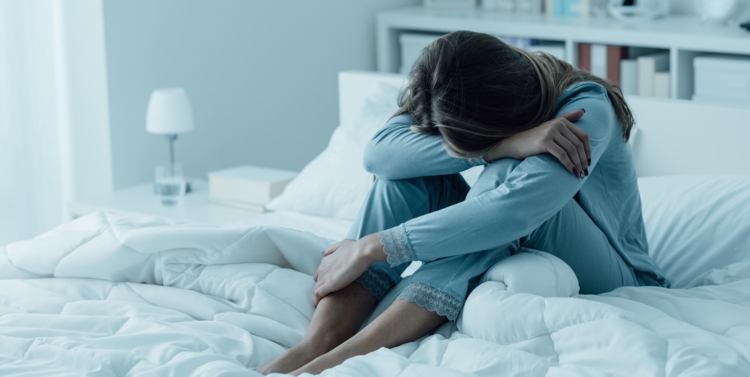- Anxiety is prevalent during PMS, affecting 85% of women, according to the American Family Physician.
- Severe PMS or PMDD symptoms like irritability and fatigue can disrupt daily life, signaling the need for professional help.
- Manage menstrual anxiety with lifestyle changes—exercise, yoga, proper sleep, and a diet rich in carbs and calcium. Essential vitamins like B-6 enhance overall well-being during anxious periods.
Ever suffered from peak levels of being on edge during periods? You’re not alone, majority of women have anxiety during periods. Although you may hear less about it than cramps and bloating, anxiety is a trademark symptom of PMS.
A spike in anxiety is triggered by hormonal changes in the body due to periods. Occasionally, these shifts in hormones can lead to the onset of premenstrual syndrome (PMS) or, in some cases, premenstrual dysphoric disorder (PMDD).
According to insights from the American Family Physician, approximately 85 percent of menstruating women acknowledge experiencing one or more symptoms associated with premenstrual phases, with 2 to 10 percent reporting symptoms that are unbearable.
Getting Help for Anxiety
If you’re wondering whether you might be dealing with PMS or PMDD, it is time you evaluate the distress and impairment caused by the symptoms. Consider the extent to which these symptoms affect your daily life—whether they are hindering your work or performance, disrupting your social life or impacting your interactions with family and friends.
If you notice a significant interference with these aspects of your life, it could be an indication that something unusual is occurring, and seeking professional help might be advisable.
Some symptoms that are severe enough to interfere with your daily life can include:
- Feelings of irritability or anger
- Feelings of sadness, hopelessness, or despair
- Tension or anxiety
- feeling on edge or keyed up
- mood swings or frequent crying
- decreased interest in activities or relationships
- trouble thinking
- Fatigue and low energy
- Binge eating and craving for food
- Insomnia
- Feeling out of control
- Physical symptoms, such as cramps, bloating, breast tenderness, headaches, and joint or muscle pain
Lifestyle Changes That Can Help Deal With Menstruation Related Anxiety
Regular Exercise:
Engage in physical activities such as dancing at home, walking, or running. Incorporate workout to enhance oxygen intake and circulation, assisting the liver in breaking down hormones associated with menstruation.
Yoga:
Practice activities like yoga, particularly restorative yoga, to induce a calm state and alleviate the fight-or-flight response associated with anxiety.
Sleep:
It is important to rest as much as possible and get an adequate amount of sleep at night to ensure the body has time to recover and maintain a healthy hormonal balance.
Diet Tips for Anxiety Relief
Apart from the lifestyle changes mentioned above, a change in diet can also help in decreasing anxiety during menstruation.
Eating Carbs:
Carbohydrate rich foods are the best thing you can do for helping with anxiety during menstruation. Think of all the comfort food and cravings – those definitely help relieve the stress and anxiety.
Calcium Rich Foods:
Incorporating foods abundant in calcium, like yogurt and milk, can further contribute to this calming effect
Essential Vitamins in the Diet
Research indicates that both calcium and vitamin B-6 have been shown to lessen the physical and psychological symptoms associated with PMS. By prioritising these nutrients, you can potentially enhance your overall well-being during periods of increased anxiety and mood fluctuations
Follow WOW360 for more.
